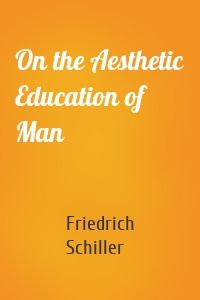Friedrich Schiller
124 кн.
The Robbers and Wallenstein
Friedrich Schiller (1759-1805) is one of the most influential German playwrights of the 18th century. His persistence as a poet, philosopher, and translator only broaden his popular reach. Along with Goethe, Schiller shaped the development of Weimar Classicism, a literary and aesthetic movement that integrated Romantic, Classical, and Humanist traditions. This edition collects a total of four plays—"The Robbers" and the «Wallenstein» trilogy. Together these works display Schiller's wide...
| Автор | Friedrich Schiller |
Man liebt nur, was einen in Freihei...
"Daran erkenn ich meine Pappenheimer", «Der kluge Mann baut vor» oder «Drum prüfe, wer sich ewig bindet» – ein rhetorisches Genie wie Schiller erkennt man vor allem daran, dass Verse und Passagen seiner Werke zu geflügelten Worten und zum festen Bestandteil unseres Sprachschatzes geworden sind. Der jungverstorbene Dichter betrachtet Literatur als Sprachrohr: In Form von Essays, Balladen, Dramen und Theaterstücken versucht Schiller scheinbar Gegensätzliches wie Verstand und Gefühl, Humanität...
| Автор | Friedrich Schiller |
On the Aesthetic Education of Man
18th century German philosopher, poet, and playwright, Friedrich Schiller began writing while he was in the army. Commanded to stop by his superiors he deserted the army, moved to another country, and began writing under a false name. Schiller was a deep-thinker on ethics and aesthetics. His beliefs held that beauty is not just an aesthetic experience, but that it is also connected with goodness. An essay on aesthetics first published in 1794, “On the Aesthetic Education of Man” takes the form...
| Автор | Friedrich Schiller |

























